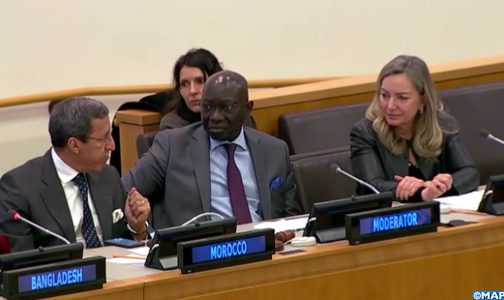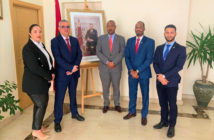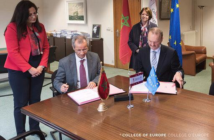The North Africa
Morocco has co-organized Tuesday in New York, along with Bangladesh and Italy a meeting on the prevention of hate speech, incitement to discrimination, hostility and violence, part of the annual Interfaith Harmony Week.
The event, held in collaboration with the UN Office for Genocide Prevention and the Responsibility to Protect, was aimed at discussing the role of religious leaders and actors to address hate speech and prevent incitement to violence. It was also aimed at exploring synergies between the Fez Plan of Action and the UN Strategy and Plan of Action on Hate Speech, as well as other relevant UN initiatives.
Addressing the event, Morocco’s permanent representative to the UN in New York, Omar Hilale, highlighted the long tradition of religious and spiritual tolerance in Morocco, where religions have coexisted for more than 12 centuries. “Religious tolerance is part of the collective conscience of Moroccan society,” as reflected by “the coexistence of mosques, churches, and synagogues in different Moroccan cities,” he said.
The Moroccan ambassador underlined that the Kingdom’s religious tolerance and fight against extremism have earned it international acclaim.
He recalled in this vein that during his visit to Morocco in March 2019, Pope Francis commended Morocco for having provided “solid training in the fight against all forms of extremism and all offenses against religions.”
Omar Hilale also recalled that Morocco has adopted several plans to ensure religious freedom and prevent extremism, mentioning in this connection the Rabat Action Plan that prohibits any incitement to racial or religious discrimination; the Marrakech Declaration on the rights of religious minorities in the Muslim world, signed in January 2016; and the Fez Action Plan on the role of religious leaders to prevent incitement to violence, launched by UN Secretary-General Antonio Guterres in July 2017.
Omar Hilale also mentioned the adoption by the UN of the Moroccan resolution on the fight against hate speech: “Fight Against Hate Speech: Promotion of Interfaith and Intercultural Dialogue and Tolerance.”
The resolution, first presented in July 2019, was co-sponsored by 90 UN member states.
The Moroccan diplomat, who called on all stakeholders to find synergies with the UN system, also made recommendations that are likely to help the international community combat hate speech.
“The creation of a common platform that will merge all launched or underway initiatives remains important to reduce duplication,” he said, suggesting the creation of a UN institute for international religious scholars who would provide training, supervision, and advice on how they could use their prominent role in their respective communities to promote a culture of peace, harmony, and coexistence.
A large number of the UN Member States and civil society organizations attended the event.
POSTED BY NORTH AFRICA POST
North Africa Post’s news desk is composed of journalists and editors, who are constantly working to provide new and accurate stories to NAP readers







